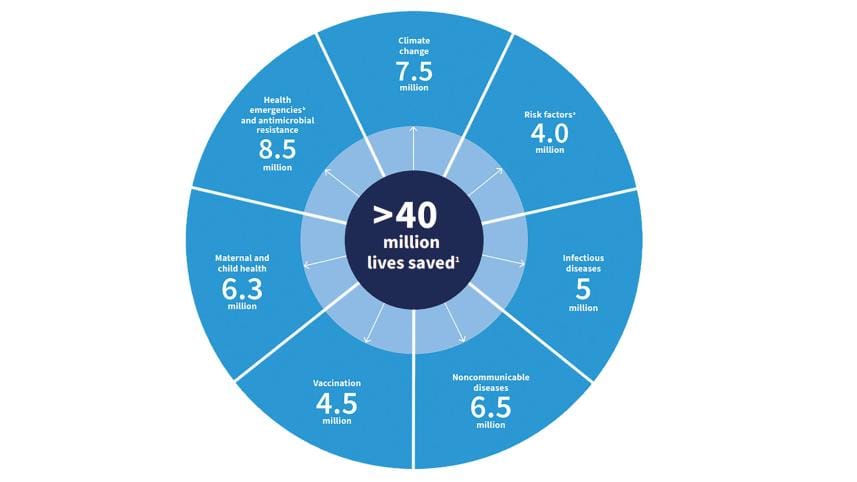A lifeline for global health

The World Health Organisation (WHO) is taking bold steps to tackle global health challenges with the launch of its first-ever investment round. This innovative approach aims to secure steady and flexible funding for WHO's core work from 2025 to 2028.
Supported by a coalition of nations, including France, Germany, Norway, Brazil, and South Africa, this initiative highlights the critical need for fully funding WHO's efforts. The investment round is not just about raising funds—it is about ensuring that these resources are used efficiently to make a tangible impact on global health.
Through the strategy for the next four years (2025-2028), the Fourteenth General Programme of Work (GPW 14), WHO will catalyse action to deliver results in the final push to the health-related SDGs, addressing global health challenges, setting the agenda on access and innovation, accelerating universal health coverage through a primary health approach, and better supporting countries in their differentiated needs based on the world's best standards.
WHO's unique infrastructure of data, country coordination, and priority-setting provides the conditions for global and regional health partnerships to set and drive investment and progress. WHO will, over the next four years, save at least 40 million lives through concrete actions, including:
increasing the number of vaccines delivered to priority countries;
providing access to health services to more than 150 million people in humanitarian settings in 30 countries;
bringing solar electrification to 10,000 health facilities;
supporting 55 countries in educating and employing 3.2 million health workers;
helping 84 countries reach targets for eliminating malaria, mother-to-child HIV transmission, and other diseases;
strengthening access to timely and reliable health data; and
prequalifying 400 health products per year
With a fully and sustainably funded WHO, decisive steps can be taken in the next 4 years to tackle emergencies and outbreaks that threaten lives and jeopardise global health security, to reduce disease, and to continue working to improve well-being for everyone, especially for the most vulnerable.
Source: World Health Organisation



 For all latest news, follow The Daily Star's Google News channel.
For all latest news, follow The Daily Star's Google News channel.
Comments